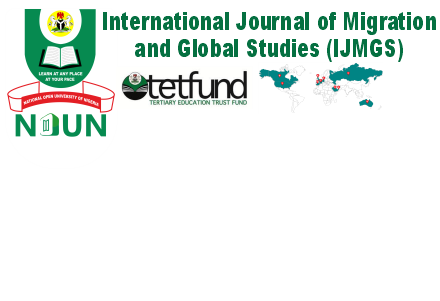Copyright Notice:
The Articles published in this Journal are published under license and is subject to copyright, reserved by the Centre of Excellence in Migration and Global Studies, National Open University of Nigeria. All works (including texts, images, graphs, tables, diagrams, photographs and statistical data) may be used for non-commercial purpose, citing appropriately the original work.
